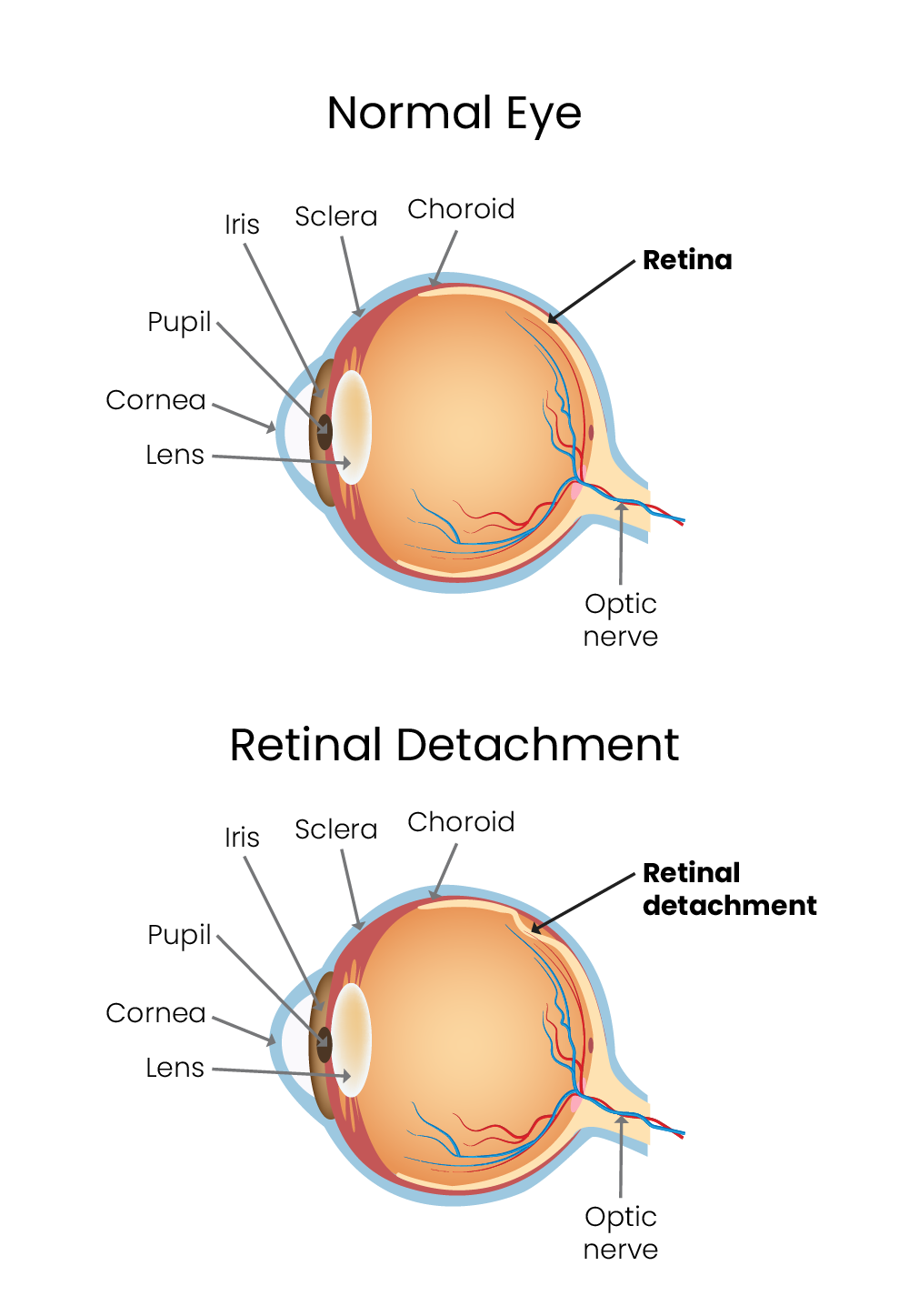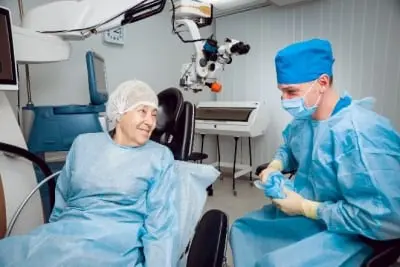What is Retinal Detachment?
When an eye emergency strikes, it is reassuring to know that the team at The Eye Health Centre is perfectly qualified and readily available to help. One of the eye emergencies that our team treats is retinal detachment, or the separation of the retina from its normal position along the inner back wall of the eye.
Timely treatment for retinal detachment is critical to preserve vision. The longer retinal detachment goes untreated, the more likely it is that the condition will cause permanent vision loss.
If you experience warning signs of retinal detachment, our doctors urge you to contact us right away and schedule an evaluation.


What are the symptoms of Retinal Detachment?
You cannot physically feel retinal detachment, but there are noticeable warning signs, including the following:
- Sudden appearance of floaters – speck-, strand-, cobweb- or cloud-like shapes that appear to drift through the visual field
- Flashes of light – can affect one or both eyes
- Blurry vision
- Decline in peripheral vision
- A gray curtain or shadow that moves from one side of the visual field to the other
If you experience any of the symptoms of a detached retina, contact The Eye Health Centre immediately or go to the closest emergency room. Do not delay, as your vision depends on it.
What causes Retinal Detachment
Most retinal detachments occur when the light-sensitive retinal tissue develops a hole or tear. This can happen due to changes to the vitreous, the gel-like substance that fills the inside of the eyeball. Normally, the vitreous moves with the eye and away from the retina; but with age, the consistency of the vitreous changes, and the vitreous can stick to certain areas of the retina. When the eye moves, the vitreous can pull or tug on the retina, creating a small hole or tear. As fluid passes through the opening and collects beneath the retina, the retina is pulled away from the underlying tissues.
Risk Factors for Retinal Detachment
Retinal detachment can affect anyone, but the condition is more common in adults over the age of 50. Other factors that can increase the risk of retinal detachment include a family history of the condition, history of a serious eye injury or cataract surgery. Extreme nearsightedness, diabetic retinopathy and posterior vitreous detachment can also heighten the risk of retinal detachment.
How we treat Retinal Detachment
Cryopexy
Retinal Detachment Treatment in BrisbaneTreatment for retinal detachment is tailored to the type and severity of the condition. Sometimes our doctors can close a small retinal hole or tear using a laser or cryopexy (freeze treatment). The laser energy or cold probe causes scar tissue to form around the tear or break in the retina, welding or securing the retina to the underlying tissue.
Surgical Correction
More serious cases of retinal detachment may require a surgical procedure such as vitrectomy, scleral buckle or pneumatic retinopexy. Sometimes two procedures are combined, depending on the nature of the case.
Do you have a question or concern about your eye health? To discuss your condition with an experienced ophthalmologist or optometrist, please contact The Eye Health Centre

